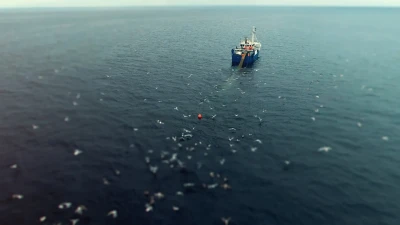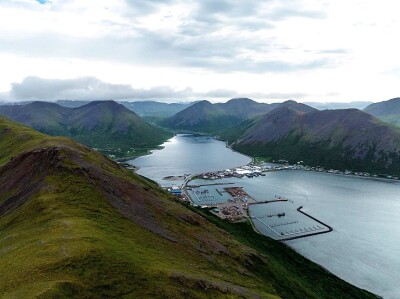This year marks the 25th anniversary of Florida’s gillnet ban. A quarter century after the state’s voters approved a complete closure on this historic gear type, the fight to keep any type of net in the water continues, and Florida’s commercial landings are still down by 70 percent.
Longtime contributor and author Robert Fritchey profiles the history of the ban and assesses the health of the industry in Florida over the last quarter century. Check out a preview of that story from our March 2020 issue.
The gillnet ban still is a crowning achievement of the Coastal Conservation Association. The organization has gone on to make consistent attacks on gillnets on every coast, some successful. Their defeats look more and more like skirmishes in a decades-long war that has largely served to pit recreational fishermen against commercial fishing families, even though these two groups intersect more often than not.
The enduring strength of fishing families has fortified coastal communities through these battles, but they cannot last forever on the front lines. That’s why it renews my eternal hope to hear the stories of families thriving in the fishing and seafood industries through deeper investment and commitment to their work.
These pages highlight some of the best outcomes of fishing families that have dug in their heels and redoubled their efforts to stay in business through vertical integration.
Boats & Gear Editor Paul Molyneaux’s Boatbuilding feature on the New Jersey clammer Joey D is a reminder that this industry is not only family-based but simultaneously national in scope. The boat was designed by a Maine firm, built in Massachusetts, and outfitted with an RSW system by Seattle’s IMS.
The family that runs Oceanside Marine has been in the seafood industry for nearly 100 years. Like many fishing operations, family is the foundation.
In our cover story, Maureen Donald profiles the Dunbar family’s Paradise Shores Seafood in North Carolina. The Dunbars put a spotlight on the ways in which working with your family can pay big dividends. This fishing and seafood family has united around finding a niche, taking some risks, and investing broadly in the local fishing industry to grow the business and keep it going for the next generation and beyond.
The Cobban family has fished out of Kodiak, Alaska, for four generations. They lost a father and son team when the Bering Sea boat Scandies Rose sank on New Year’s Eve, along with three other crew members. The two survivors reported heavy weather and freezing spray as contributing to the capsize of the 130-foot boat. Associate Editor Kirk Moore tells the story to date, and you can be sure we’ll continue to follow it.
The loss of life at sea affects a wide web. As communities, we gather around the families of those lost, raise funds to help secure their near future, and even send their kids to school with scholarships. The commitment of the extended community of fishing families to care for our own is unparalleled.
Whether you’re related by blood or not, most fishing crews work together as family. As we listen to the survivors, glean lessons from their memories and marvel at how lucky they were to find solid ground again, let’s remember that recovery from a traumatic event is not just physical. They are faced with reconciling the loss of their fishing family with the luck of having survived, and that is best done with the support of the community, too.







